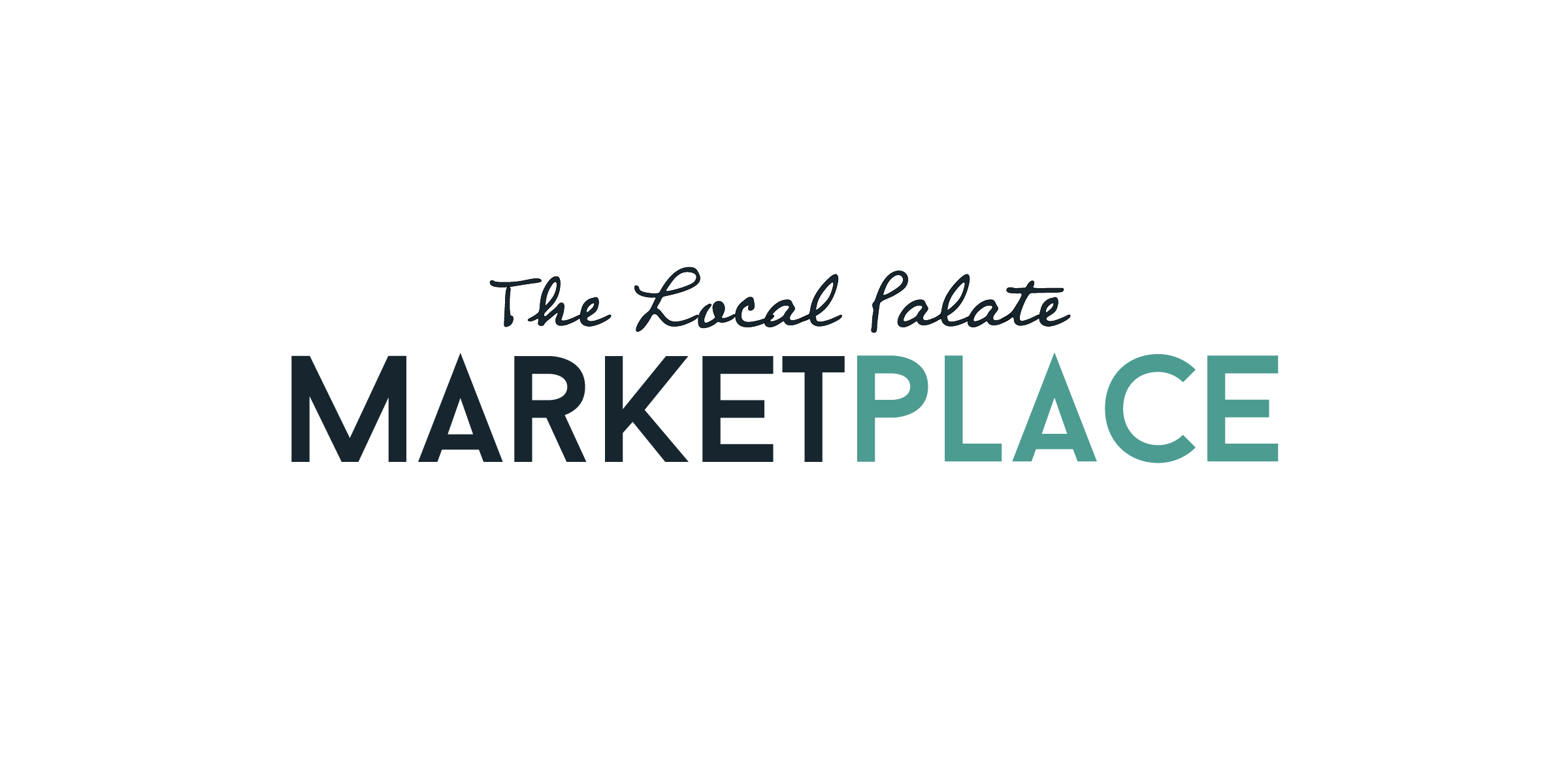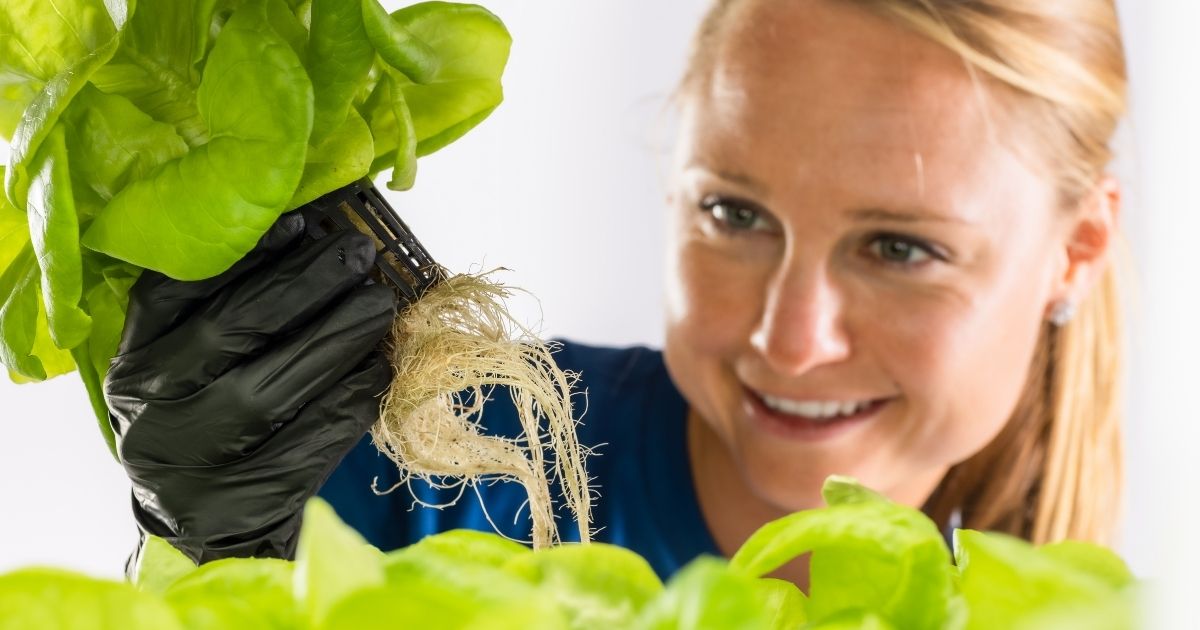Babylon Micro-Farms’ app-controlled indoor systems could revolutionize urban food systems and grow indoor gardening
Executive chef Jim Anile unpacks a basket of heirloom greens in the kitchen of the Mill Room restaurant at Charlottesville, Virginia’s Boar’s Head Resort. Out comes a bounty of wasabi arugula, red and green butterhead lettuce, bok choy, leafy cabbage, radish sprouts, and more.
“Fresh from our year-round farm,” he says with a laugh, pointing to a century-old stone building surrounded by snow. Its historic appearance belies a secret: Inside is one of the world’s most technologically sophisticated indoor gardens.
A pair of 20-foot-long shelving units holds more than thirty varieties of heirloom herbs, edible flowers, and leafy greens in various stages of growth. The sleek, stainless-steel casements, low profile LED tube-lights, computerized sensors, and hydration systems look like something from Star Trek: Discovery.
But the comparison goes beyond appearance. Everything from lighting schedules to watering, air temperature, humidity, nutrient levels, and more, is controlled by proprietary software and cloud computing. An app provides realtime updates and notifications when plants are ready for harvest.

“The convenience is unbelievable,” says Anile, who arrived at Mill Room skeptical about indoor gardening. On one hand, optimal conditions bring maximum yields: The hydroponic farm supplies more than 95 percent of leafy greens and garnish for three restaurants. Meanwhile, “the quality is just superb.”

Anile isn’t alone in his endorsement. Richmond-based Babylon Micro-Farms has installed similar systems in about seventy-five Southeastern restaurants, schools, businesses, and homes since 2017. The results are helping affect a revolution in urban food sourcing.
“We’re using advances in technology to provide greater and more nutritious food autonomy to urban communities,” says Babylon founding CEO and co-founder Alexander Oleson, who launched the company alongside Graham Smith, CTO. Ultimately, “our goal is to help shift [US food systems] toward a dramatically more sustainable paradigm.”
Crunching numbers around efficiency and ecological impact prove Oleson’s point. Babylon’s basic 15-square-foot residential micro-farm—which costs around 3,500 dollars and is about the size of a large bookshelf—produces up to 4,160 servings of flavorful and nutritious food from forty varieties of leafy greens, herbs, microgreens, and edible flowers.
Automation and precision delivery cut comparative usage of water by as much as 96 percent and fertilizer by 65 percent. Fossil-fueled tasks, like tilling and shipping, are nullified, resulting in 71 percent less carbon emissions when zero miles of transportation are required. Food waste is also dramatically reduced—US produce travels an average of 1,500 miles to grocery stores and half perishes along the way.
But Babylon didn’t begin with intentions of fighting climate change. Oleson and Smith met as students working on a social entrepreneurship project at the University of Virginia’s Darden School of Business in 2015. They were interested in providing better, more nutritious foods to asylum seekers in Middle Eastern refugee camps.
“We were looking at all the remarkable tech advancements that’d happened in corporate agriculture,” says Oleson. The analysis triggered an idea: Could technologies be bundled into an affordable, user-friendly, fully automated, and hyper-efficient modular unit?
Building a pilot model revealed a blind spot in the US hydroponics market. Products catered almost exclusively to large-scale commercial farming or hobby home-growing. The latter were comparatively unsophisticated and came with big learning curves around setup and usage.
“They were also quite aesthetically unappealing,” Oleson says with a laugh. He and Smith imagined chic, stylish units that incorporated cutting-edge technology and were 100 percent plug-and-play. They’d include customer service and maintenance plans as well. A partnership with the Thomas Jefferson Center for Historical Plants at Monticello would provide heirloom seeds.

Babylon used various grants to help fund its 2017 launch—and later received a National Science Foundation innovation grant to enhance research and development efforts. Its rapid success has attracted about 10 million dollars in investments in the past two years alone. The funding has enabled the company to scale up and expand to about fifty full-time employees. Discussions around deals for installs with national hotel and grocery chains, corporate dining rooms, and major universities are in progress.
“Our goal is to bring this technology mainstream and augment existing sustainable agriculture [systems],” Oleson says.
He hopes to create a new normal where solar-powered Babylon units offer fresh ingredients for salads in school cafeterias, grocery stores, hotels, workplace lounges—the list goes on.
“That’d be a huge leap in the direction of a genuinely healthy and sustainable urban food system,” Oleson says. “And frankly, I don’t think it’s a matter of if, but how soon.”
Read more stories of sustainability in the Local Palate‘s Green Issue, available on news stands beginning May 3, 2022. Or, subscribe to our digital edition and start reading now!.
share
trending content
-
Chefs Heading To The Palmetto Party
by TLP's Partners -
A First Look at Fancypants | Listen
by Erin Byers Murray -
How to Build the Perfect Cheese Board | Video
by Maggie Ward -
5 Things to Do in Bath County, Virginia
by TLP's Partners -
Bearing Fruit at Big Apple Inn
by Erin Byers Murray
More From In the Field
-
What’s Good in the Neighborhood | Listen
-
10 Southern Innovators Changing the Game
-
Why Aren’t We Eating More Wild-Caught Shrimp? | Listen
-
In the Kitchen with Chef EJ Lagasse of Emeril’s | Listen
-
Playing With Fire at Austin’s Best Food and Music Festival | Listen





